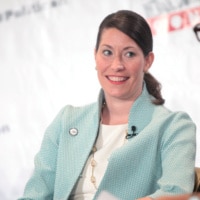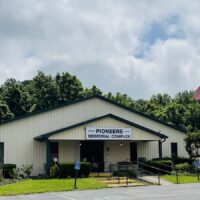Kentucky’s public defenders are preparing for a potential surge in demand following the Supreme Court’s decision in Dobbs v. Jackson Women’s Health Organization, which overturned federal protections for abortion access granted nearly 50 years ago under Roe v. Wade.
The Kentucky Department of Public Advocacy, or DPA, is responsible for representing Kentuckians accused of crimes who cannot afford to hire a private attorney. In a post-Roe world where lack of access to abortion heavily impacts people of color and those with limited incomes, public defenders will soon learn their roles in what could be a sharp increase in prosecutions targeting both patients seeking an abortion and those providing the procedure.
Damon Preston is the commonwealth’s Public Advocate and chief public defender. He said his team is currently reviewing Kentucky’s existing abortion restrictions and how they could be applied in the wake of the Supreme Court’s recent decision. That information will be used to create training materials for the agency’s more than 300 staff attorneys statewide.
“Centralized, we’re trying to get information to set up future education,” Preston said. “But we already kind of have our network on the lookout for the first case that’s brought.”
Receiving or providing a procedural or medical abortion in Kentucky is now a class D felony, punishable by one to five years in prison. The only exceptions to Kentucky’s “trigger law” banning abortions after the Supreme Court’s decision are if the procedure is a medical necessity to save the life of the pregnant patient, or if it’s being done to avoid permanent damage to a life-sustaining organ.
Preston said he’s concerned abortion prosecutions will create a criminal law issue out of what he said should be a medical and social issue.
“Criminal law works great to keep people from breaking in your house. But when it comes to substance abuse, mental health, poverty issues, it’s just not a great fit and I’m afraid we’re headed down that road,” Preston said.
Copyright 2022 WKU Public Radio.






